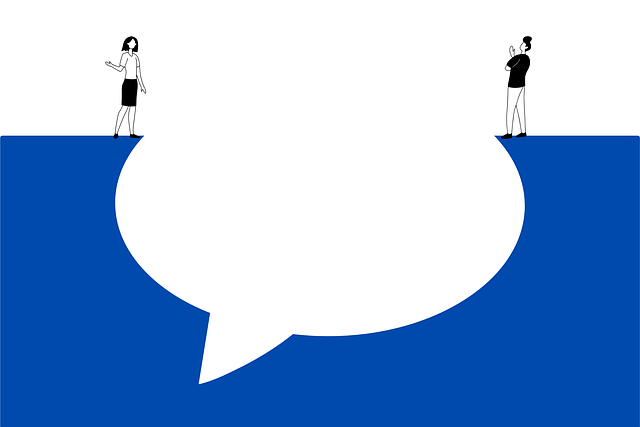Cold plunging—immersion in cold water below 59°F (15°C)—is a powerful modern antidote to stress. It sparks physiological responses releasing 'feel-good' hormones, constricting blood vessels, slowing heart rates, and stimulating the vagus nerve, leading to reduced anxiety, improved mood, and increased mental resilience. Regular cold water therapy sessions enhance stress and anxiety resistance, promote relaxation, and improve emotional regulation through balancing the autonomic nervous system. To maximize benefits, combine plunges with physical and mental relaxation techniques, deep breathing exercises, mindfulness practices like meditation or journaling, and progressive muscle relaxation.
Unwind and reconnect with your body through the transformative power of cold water immersion. This article explores how a simple routine of cold plunging can be a game-changer in managing stress and anxiety. We delve into the science behind cold water therapy, uncovering its profound effects on mental health. Learn practical steps to incorporate cold exposure into your daily life for enhanced relaxation and discover tips to maximize the calming benefits of this ancient practice.
Understanding Cold Plunge for Stress and Anxiety: Unlocking the Power of Cold Water Therapy
Cold plunging, or immersing oneself in cold water, has gained attention as a powerful tool to combat stress and anxiety in today’s fast-paced world. This ancient practice involves temporarily exposing your body to cold temperatures, often through quick dips in ice baths or cold bodies of water. The concept may seem extreme, but the benefits for mental health are well documented.
When you subject yourself to a cold plunge, it triggers a cascade of physiological responses. Your body releases endorphins, known as the ‘feel-good’ hormones, which can reduce stress and create a sense of calm. Additionally, cold water therapy constricts blood vessels, slowing heart rate and promoting a sense of relaxation. This sudden cold exposure also stimulates the vagus nerve, which plays a key role in regulating emotions and is often referred to as the ‘rest and digest’ nerve. As a result, regular cold plunges can help lower anxiety levels, improve mood, and enhance overall mental resilience. The calming effects can be felt almost immediately, making it an accessible and effective strategy for managing stress and promoting a peaceful mind.
The Science Behind Cold Water Therapy for Mental Health: Benefits and Mechanisms
The practice of cold water therapy, particularly through cold plunges or immersions, has gained attention for its potential mental health benefits. When you subject your body to a cold environment, whether through a cold shower or a full-body plunge in ice-cold water, it triggers a series of physiological responses. One key mechanism is the release of stress hormones like cortisol and adrenaline, which are responsible for our ‘fight or flight’ response. By exposing yourself to cold, you can stimulate your body’s natural anti-stress response, leading to reduced levels of these hormones over time.
Additionally, cold water therapy increases blood flow and triggers a mild form of physical stress on the body. This stimulates the release of endorphins, often referred to as ‘feel-good’ hormones, which contribute to feelings of relaxation and happiness. The calming effects of cold plunges can also be attributed to their impact on the nervous system. Cold water exposure helps to regulate and balance the autonomic nervous system, promoting a sense of tranquility and reducing symptoms of anxiety. Regular practice may even lead to long-term mental health benefits, as it enhances resilience to stress and promotes better emotional regulation.
Incorporating Cold Exposure for Anxiety Reduction into Your Daily Routine
Incorporating cold exposure into your daily routine can be a powerful tool to combat stress and anxiety. Cold water therapy, such as a cold plunge or immersion, has gained recognition for its positive impact on mental health. The practice involves briefly exposing yourself to cold water, typically below 59°F (15°C), which triggers a range of physiological responses in your body. One of the key benefits is its ability to reduce stress hormones like cortisol, often referred to as the ‘stress hormone’. This reaction leads to an increase in noradrenaline, which can enhance focus and mood while also promoting a sense of calmness.
Regular cold water immersion for relaxation can help reset your autonomic nervous system, balancing between the sympathetic (fight or flight) and parasympathetic (rest and digest) states. This balance is crucial for managing anxiety. The calming effects of cold plunges can be felt almost immediately, leaving you with a sense of tranquility and improved mental clarity. By integrating this practice into your morning routine or as a quick break during the day, you can effectively manage stress levels and promote better mental well-being.
Maximizing Calming Effects of Cold Plunges: Tips and Techniques for Optimal Relaxation
To maximize the calming effects of cold plunges, focus on techniques that enhance both physical and mental relaxation. One key tip is to maintain a consistent temperature—aim for water between 50–60°F (10–15°C)—as sudden temperature changes can be jarring. Start with shorter immersions, around 3-5 minutes, and gradually increase duration as you build tolerance. Deep breathing exercises during the plunge can significantly boost mental calmness; try inhaling for a count of four, holding for two, then exhaling for six.
Creating a ritual around your cold plunge also enhances relaxation. Choose a quiet, natural setting if possible. Beforehand, practice progressive muscle relaxation to release physical tension. After the plunge, dry off and wrap yourself in a warm blanket to help your body adjust. Engage in mindful activities like meditation or journaling upon emerging to reinforce the calming benefits of cold water immersion for mental health and stress reduction.
Integrating cold water immersion through cold plunges into your daily routine can be a powerful tool to combat stress and anxiety. Backed by scientific evidence, cold water therapy stimulates the release of endorphins, enhances mental clarity, and promotes deeper relaxation. By consistently practicing this ancient technique, you can unlock significant benefits for your mental health and overall well-being, making it an effective and accessible method for managing stress in today’s fast-paced world.
